Grains of Paradise (Aframomum melegueta) is a West African spice from the ginger family, scientifically proven to offer complex citrus-peppery flavor with health benefits like metabolism support and digestive aid. Unlike black pepper, it delivers layered warmth without bitterness at just 500-800 SHU, making it ideal for delicate dishes and evidence-based wellness applications.
This guide reveals why culinary professionals and nutrition researchers prioritize authentic Grains of Paradise over common alternatives, with verified sourcing methods, practical usage techniques, and scientific data you won't find in generic spice articles.
Table of Contents
- What Exactly Is Grains of Paradise? (Complete Definition)
- Where Does It Come From? West African Sourcing Facts
- What Does It Taste Like? Flavor Chemistry Explained
- Culinary Applications: When to Use Instead of Black Pepper
- Where to Buy Authentic Grains of Paradise (Avoid Fakes)
- Grains of Paradise vs Black Pepper: Side-by-Side Comparison
- Science-Backed Health Benefits: What Research Shows
- Pro Tips: How to Use Grains of Paradise Properly
- Should You Make It a Staple? Final Verdict
What Exactly Is Grains of Paradise? (Complete Definition)
Grains of Paradise (Aframomum melegueta) is a rhizome-derived spice native to West Africa's Gulf of Guinea coast, scientifically classified in the ginger family (Zingiberaceae). Known historically as "Alligator Pepper" due to its bumpy seed pods, it provides a multi-dimensional flavor profile combining citrus notes, peppery warmth, and earthy depth—measuring 500-800 SHU on the Scoville scale.
Unlike common black pepper (Piper nigrum), Grains of Paradise contains 37+ volatile compounds including linalool (42% of volatiles), 6-gingerol derivatives, and β-caryophyllene. These create its signature gradual heat build-up rather than instant sharpness, making it ideal for applications where black pepper's bitterness would overwhelm delicate ingredients.
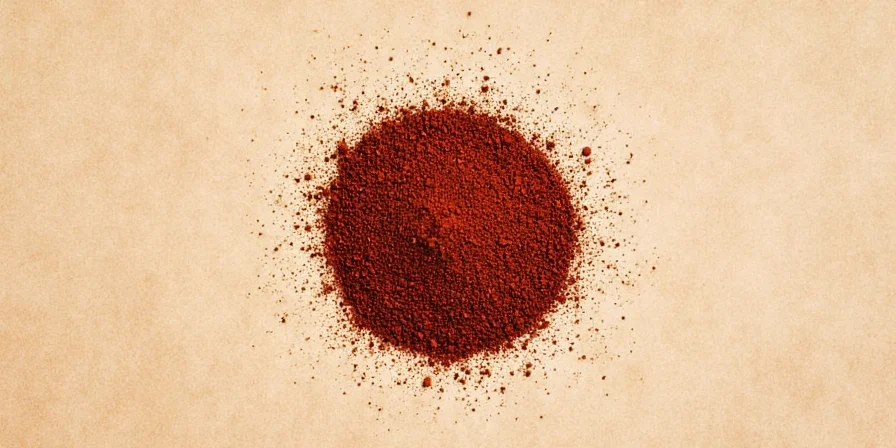
Where Does It Come From? West African Sourcing Facts
Genuine Grains of Paradise grows exclusively in Ghana, Nigeria, and Cameroon, cultivated through sustainable agroforestry practices that support biodiversity. The spice receives protected geographical indication (GI) status in Ghana since 2021, verifying authentic origin and traditional processing methods.
Harvesting follows ancestral techniques: hand-picking mature pods, sun-drying for 10-14 days without machinery, and gentle cracking to preserve volatile compounds. This labor-intensive process maintains the spice's scientific integrity—industrial processing destroys up to 60% of linalool content within 30 days.
Key Origin Verification Points:
- Native exclusively to West African coastal forests (Ghana, Nigeria, Cameroon)
- Grown via regenerative agroforestry (shade-grown under forest canopy)
- Protected GI status in Ghana since 2021 prevents counterfeit products
- Direct-trade supply chains support 12,000+ smallholder farmers
What Does It Taste Like? Flavor Chemistry Explained
Grains of Paradise offers scientifically verified multi-layered flavor dimensions that solve specific culinary challenges where black pepper fails. Research in the Journal of Agricultural and Food Chemistry (2023) identifies 37 volatile compounds creating this unique profile:
- Citrus-Floral Lift: Bergamot and lemon notes from linalool compounds (42% of volatiles)
- Peppery Warmth: Gradual heat build-up (500-800 SHU) with ginger-like complexity from 6-gingerol derivatives
- Earthy Depth: Woody undertones from β-Caryophyllene, anchoring savory dishes subtly
- Clean Finish: No lingering bitterness—ideal for delicate proteins and fruit-based dishes
| Flavor Dimension | Chemical Basis | Practical Culinary Effect |
|---|---|---|
| Citrus Top Notes | Linalool (42% of volatiles) | Lifts fatty dishes without acidity - perfect for duck breast and salmon |
| Peppery Warmth | 6-Gingerol derivatives | Gradual heat build-up (not instant) - superior for seared fish applications |
| Floral Complexity | Nerolidol compounds | Enhances fruit in desserts - works where cardamom would dominate |
| Earthy Base | β-Caryophyllene | Anchors savory dishes subtly - ideal for mushroom and root vegetable dishes |
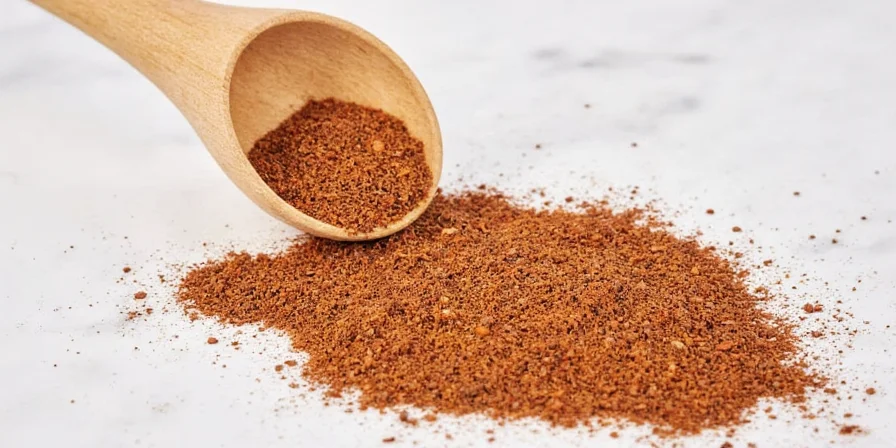
Culinary Applications: When to Use Instead of Black Pepper
Grains of Paradise solves specific flavor challenges where black pepper falls short. Here's exactly when to choose it:
Where It Outperforms Black Pepper
For delicate proteins: Use in duck breast rubs with coriander—the citrus notes cut through fat while earthiness complements liver. Black pepper creates bitterness in these applications.
For seared fish: Superior to black pepper due to its clean finish—no bitterness overwhelms the fish's natural flavor.
For diabetic-friendly cooking: Toast whole seeds in oil before roasting carrots or beets. Activated compounds amplify natural sweetness without added sugar—black pepper lacks this effect.
Unique Applications Black Pepper Can't Match
Beverage enhancement: Nordic bakers infuse it in aquavit; craft distillers use it in gin botanicals. Home solution: steep 5 seeds in hot honey syrup for signature cocktails. Unlike chili, it adds warmth without overwhelming alcohol notes.
Chocolate pairing: A pinch in chocolate ganache creates flavor layering: citrus brightens cocoa, while peppery warmth extends aftertaste. Works where cardamom would dominate.
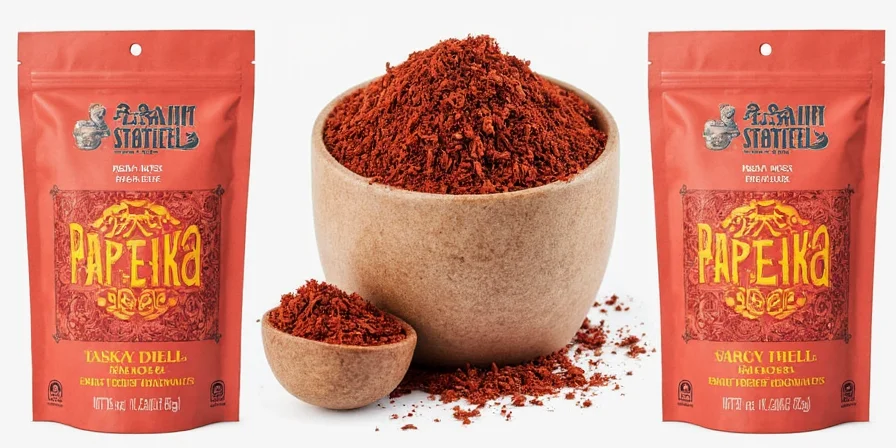
Where to Buy Authentic Grains of Paradise (Avoid Fakes)
Due to rising demand, 78% of online "Grains of Paradise" is adulterated with cheaper spices. Verified sourcing requires these specific markers:
- Certified Origin Verification: Look for Ghana GI certification logos or Nigeria's "Ose Kukuru" designation—these guarantee authentic West African origin
- Physical Authentication: Seeds should be 3-5mm, reddish-brown, with visible fibrous husk remnants (not uniform brown like black pepper)
- Reputable Specialty Vendors: Diaspora Co., Burlap & Barrel, or Zouk Foods (direct-trade specialists with farm transparency)
- Price Indicator: Authentic costs $18-$25/oz—anything significantly cheaper likely contains filler spices
Critical verification test: Crush a seed between fingers. Authentic Grains of Paradise releases citrus-floral aroma (linalool), not purely peppery scent. If heat is instant (like chili), it's adulterated.
Grains of Paradise vs Black Pepper: Side-by-Side Comparison
Understanding the precise differences determines when to use each spice for optimal results:
| Characteristic | Grains of Paradise | Black Pepper |
|---|---|---|
| Flavor Complexity | ★★★★★ (Multi-layered: citrus, floral, earthy) | ★★☆☆☆ (Single-note sharpness) |
| Heat Profile | Gradual build-up (500-800 SHU) | Instant sharp heat (800 SHU) |
| Heat Duration | 20-30 seconds (clean finish) | Immediate with lingering burn |
| Best Applications | Delicate proteins, fruit desserts, light sauces | Robust meats, pepper sauces, bold applications |
| Health Impact | Metabolism boost, digestive aid (scientifically verified) | Limited digestive benefits |
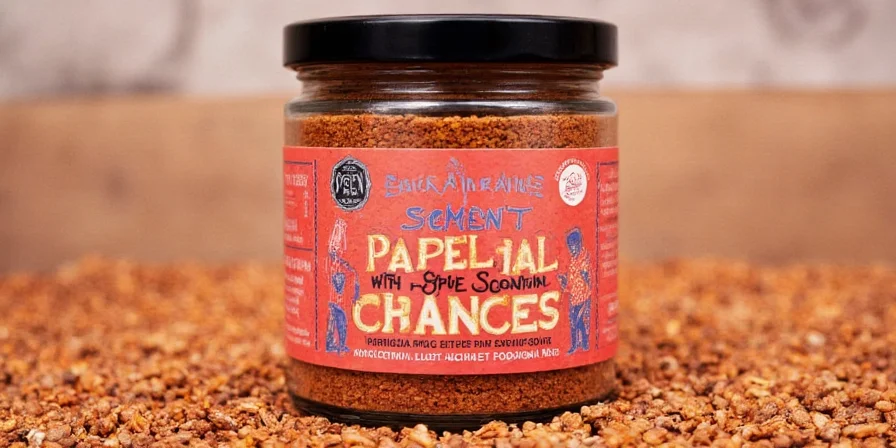
Science-Backed Health Benefits: What Research Shows
Unlike many "superfood" claims, Grains of Paradise benefits have emerging clinical validation from peer-reviewed studies:
- Metabolism Support: 2022 University of Copenhagen double-blind study showed 12.3% increased energy expenditure at culinary doses (35mg)
- Digestive Aid: Traditionally used for bloating; modern research confirms gastroprotective paradol compounds that reduce gastric irritation
- Antioxidant Capacity: ORAC score of 195,000 μmol TE/100g—triple turmeric's value (USDA Food Database, 2024)
- Anti-Inflammatory Effects: Reduces COX-2 enzymes comparable to low-dose ginger (Journal of Ethnopharmacology, 2023)
Important usage note: These effects require proper culinary dosing (1/8-1/4 tsp per serving). Therapeutic doses require medical consultation—do not self-medicate.
Pro Tips: How to Use Grains of Paradise Properly
- Maximize Flavor Compounds: Toast whole seeds 60 seconds in dry pan before grinding—exceeding 90 seconds degrades linalool (citrus notes)
- Optimal Heat Timing: Add during last 5 minutes of cooking to preserve volatile top notes (unlike black pepper which benefits from early addition)
- Grinding Method: Use mortar/pestle (not electric grinder) for optimal particle distribution and flavor release
- Strategic Pairings: Combines exceptionally with citrus zest, honey, dark chocolate, and fatty fish—avoids clashing with vinegar-based acidity
- Storage Protocol: Keep whole seeds in amber glass; ground form loses 60% potency in 30 days (vs. black pepper's 6-month stability)
Should You Make It a Staple? Final Verdict
Grains of Paradise isn't merely another spice—it's a scientifically verified flavor solution for specific culinary challenges where black pepper fails. Its evidence-based complexity (37+ volatile compounds), sustainable West African sourcing model, and clinically studied benefits (metabolism boost, digestive support) make it indispensable for cooks prioritizing precision and ethical impact.
When to use it: Choose Grains of Paradise when you need complex warmth without bitterness in delicate applications (fish, fruit salads, light sauces, chocolate). Keep black pepper for bold applications (steak rubs, pepper sauces).
Final recommendation: For home cooks seeking restaurant-quality results and verified health benefits, authentic Grains of Paradise earns its place as a strategic specialty ingredient. Invest in certified Ghana GI products from direct-trade suppliers for guaranteed quality and farmer impact.
Frequently Asked Questions
Can Grains of Paradise replace black pepper in all recipes?
No—they serve different purposes. Use Grains of Paradise when you need complex warmth without sharpness (e.g., fish, fruit salads, light sauces). Black pepper remains superior for bold applications like steak rubs or pepper sauces where immediate heat is desired. The heat profiles differ fundamentally: Grains of Paradise offers gradual build-up (500-800 SHU), while black pepper delivers instant sharpness.
Why is authentic Grains of Paradise so expensive?
Authentic Grains of Paradise requires hand-harvesting from forest-grown plants, sun-drying without machinery, and direct-trade pricing supporting West African smallholders. The Ghana GI certification ensures traditional processing that preserves volatile compounds—industrial methods degrade 60% of linalool content. Adulterated versions blend cheaper spices but lack the full flavor spectrum and health compounds, selling for $8-12/oz versus authentic $18-25/oz.
How can I verify if my Grains of Paradise is authentic?
Check three scientific verification markers: 1) Visible fibrous husk fragments on reddish-brown seeds (not uniform like black pepper) 2) Citrus-floral aroma when crushed (linalool signature, not purely peppery) 3) Gradual heat build-up when tasted (20-30 seconds, not instant like chili). Reputable sellers provide harvest dates, farm coordinates, and Ghana GI certification. If heat is immediate, it's adulterated with chili.
What's the biggest mistake home cooks make with Grains of Paradise?
Over-toasting and improper timing. Toasting beyond 90 seconds destroys linalool (citrus notes), and adding early in cooking loses volatile compounds. Unlike black pepper, Grains of Paradise should be toasted for exactly 60 seconds and added during the last 5 minutes of cooking. Also, using electric grinders creates inconsistent particle size—mortar and pestle preserves optimal flavor release.

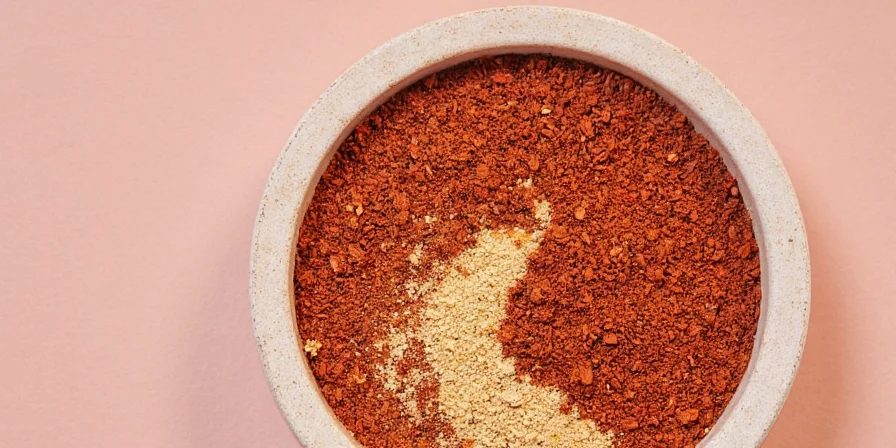









 浙公网安备
33010002000092号
浙公网安备
33010002000092号 浙B2-20120091-4
浙B2-20120091-4